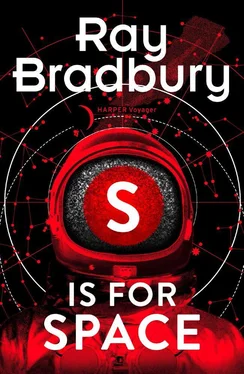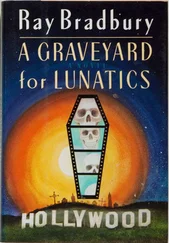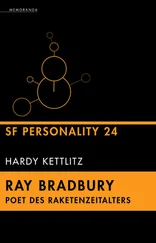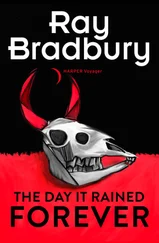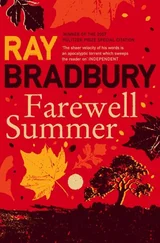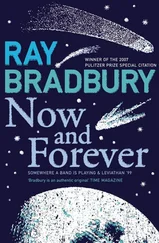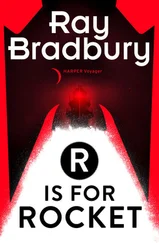“Yet, he’s breathing.” Rockwell’s voice was numb. He dropped his stethoscope blankly, picked it up, and saw his fingers shaking.
Hartley grew tall, emaciated, nervous over the table. “Smith didn’t like my calling you. I called anyway. Smith warned me not to. Just an hour ago.”
Rockwell’s eyes dilated into hot black circles. “How could he warn you? He can’t move.”
Hartley’s face, all razor-sharp bone, hard jaw, tight squinting gray eyes, twitched nervously. “Smith— thinks . I know his thoughts. He’s afraid you’ll expose him to the world. He hates me. Why? I want to kill him, that’s why. Here.” Hartley fumbled blindly for a blue-steel revolver in his rumpled, stained coat. “Murphy. Take this. Take it before I use it on Smith’s foul body!”
Murphy pulled back, his thick red face afraid. “Don’t like guns. You take it, Rockwell.”
Like a scalpel, Rockwell made his voice slash. “Put the gun away, Hartley. After three months tending one patient you’ve got a psychological blemish. Sleep’ll help that.” He licked his lips. “What sort of disease has Smith got?”
Hartley swayed. His mouth moved words out slowly. Falling asleep on his feet, Rockwell realized. “Not diseased,” Hartley managed to say. “Don’t know what. But I resent him, like a kid resents the birth of a new brother or sister. He’s wrong. Help me. Help me, will you?”
“Of course.” Rockwell smiled. “My desert sanitarium’s the place to check him over, good. Why—why Smith’s the most incredible medical phenomenon in history. Bodies just don’t act this way!”
He got no further. Hartley had his gun pointed right at Rockwell’s stomach. “Wait. Wait. You—you’re not going to bury Smith? I thought you’d help me. Smith’s not healthy. I want him killed! He’s dangerous! I know he is!”
Rockwell blinked. Hartley was obviously psychoneurotic. Didn’t know what he was saying. Rockwell straightened his shoulders, feeling cool and calm inside. “Shoot Smith and I’ll turn you in for murder. You’re overworked mentally and physically. Put the gun away.”
They stared at one another.
Rockwell walked forward quietly and took the gun, patted Hartley understandingly on the shoulder, and gave the weapon to Murphy, who looked at as if it would bite him. “Call the hospital, Murphy. I’m taking a week off. Maybe longer. Tell them I’m doing research at the sanitarium.”
A scowl formed in the red fat flesh of Murphy’s face. “What do I do with this gun?”
Hartley shut his teeth together, hard. “Keep it. You’ll want to use it—later.”
Rockwell wanted to shout it to the world that he was sole possessor of the most incredible human in history. The sun was bright in the desert sanitarium room where Smith lay, not saying a word, on his table; his handsome face frozen into a green, passionless expression.
Rockwell walked into the room quietly. He used the stethoscope on the green chest. It scraped, making the noise of metal tapping a beetle’s carapace.
McGuire stood by, eyeing the body dubiously, smelling of several recently acquired beers.
Rockwell listened intently. “The ambulance ride may have jolted him. No use taking a chance—”
Rockwell cried out.
Heavily, McGuire lumbered to his side. “What’s wrong?”
“Wrong?” Rockwell stared about in desperation. He made one hand into a fist. “Smith’s dying!”
“How do you know? Hartley said Smith plays possum. He’s fooled you again—”
“No!” Rockwell worked furiously over the body, injecting drugs. Any drugs. All drugs. Swearing at the top of his voice. After all this trouble, he couldn’t lose Smith. No, not now.
Shaking, jarring, twisting deep down inside, going completely liquidly mad, Smith’s body sounded like dim volcanic tides bursting.
Rockwell fought to remain calm. Smith was a case unto himself. Normal treatment did nothing for him. What then? What?
Rockwell stared. Sunlight gleamed on Smith’s hard flesh. Hot sunlight. It flashed, glinting off the stethoscope tip. The sun. As he watched, clouds shifted across the sky outside, taking the sun away. The room darkened. Smith’s body shook into silence. The volcanic tides died.
“McGuire! Pull the blinds! Before the sun comes back!”
McGuire obeyed.
Smith’s heart slowed down to its sluggish, infrequent breathing.
“Sunlight’s bad for Smith. It counteracts something. I don’t know what or why, but it’s not good—” Rockwell relaxed. “Lord, I wouldn’t want to lose Smith. Not for anything. He’s different, making his own standards, doing things men have never done. Know something, Murphy?”
“What?”
“Smith’s not in agony. He’s not dying either. He wouldn’t be better off dead, no matter what Hartley says. Last night as I arranged Smith on the stretcher, readying him for his trip to this sanitarium, I realized, suddenly, that Smith likes me.”
“Gah. First Hartley. Now you. Did Smith tell you that?”
“He didn’t tell me. But he’s not unconscious under all that hard skin. He’s aware. Yes, that’s it. He’s aware.”
“Pure and simple—he’s petrifying. He’ll die. It’s been weeks since he was fed. Hartley said so. Hartley fed him intravenously until the skin toughened so a needle couldn’t poke through it.”
Whining, the cubicle door swung slowly open. Rockwell started. Hartley, his sharp face relaxed after hours of sleep, his eyes still a bitter gray, hostile, stood tall in the door. “If you’ll leave the room,” he said, quietly, “I’ll destroy Smith in a very few seconds. Well?”
“Don’t come a step closer.” Rockwell walked, feeling irritation, to Hartley’s side. “Every time you visit, you’ll have to be searched. Frankly, I don’t trust you.” There were no weapons. “Why didn’t you tell me about the sunlight?”
“Eh?” Soft and slow Hartley said it. “Oh—yes. I forgot. I tried shifting Smith weeks ago. Sunlight struck him and he began really dying. Naturally, I stopped trying to move him. Smith seemed to know what was coming, vaguely. Perhaps he planned it; I’m not sure. While he was still able to talk and eat ravenously, before his body stiffened completely, he warned me not to move him for a twelve-week period. Said he didn’t like the sun. Said it would spoil things. I thought he was joking. He wasn’t. He ate like an animal, a hungry, wild animal, fell into a coma, and here he is—” Hartley swore under his breath. “I’d rather hoped you’d leave him in the sun long enough to kill him inadvertently.”
McGuire shifted his two hundred fifty pounds. “Look here, now. What if we catch Smith’s disease?”
Hartley looked at the body, his pupils shrinking. “Smith’s not diseased. Don’t you recognize degeneration when you see it? It’s like cancer. You don’t catch it, you inherit a tendency. I didn’t begin to fear and hate Smith until a week ago when I discovered he was breathing and existing and thriving with his nostrils and mouth sealed. It can’t happen. It mustn’t happen.”
McGuire’s voice trembled. “What if you and I and Rockwell all turn green and a plague sweeps the country—what then?”
“Then,” replied Rockwell, “if I’m wrong, perhaps I am, I’ll die. But it doesn’t worry me in the least.”
He turned back to Smith and went on with his work.
A bell. A bell. Two bells, two bells. A dozen bells, a hundred bells. Ten thousand and a million clangorous, hammering, metal dinning bells. All born at once in the silence, squalling, screaming, hurting echoes, bruising ears!
Ringing, chanting with loud and soft, tenor and bass, low and high voices. Great-armed clappers knocking the shells and ripping air with the thrusting din of sound!
Читать дальше
